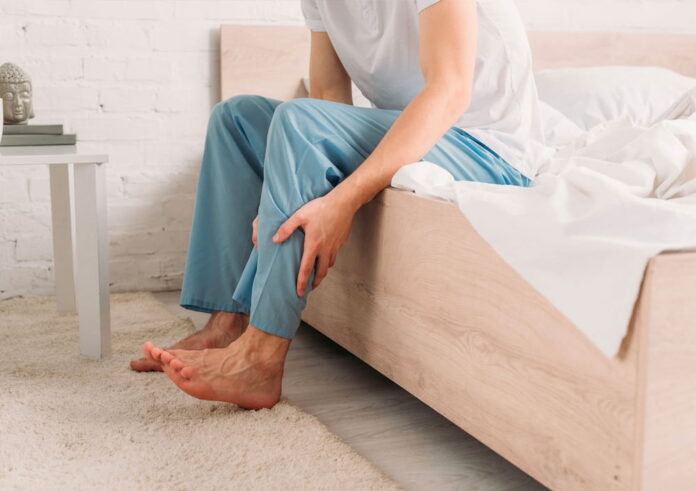Varicose veins are caused by circulatory system dysfunction. Although varicose veins can appear everywhere on the body, they are most commonly found in the legs. Varicose veins are linked to several leg disorders. What are these syndromes, and how do they affect varicose veins? In this post, we will solve these doubts, and you will learn more about varicose veins.
Varicose veins, a problem beyond aesthetics
Varicose veins are mostly considered only an aesthetic problem because of the appearance they cause on the skin. When they affect the legs, these veins are visible to the naked eye because they protrude from the skin due to dilatation.
Varicose veins are distinguished by their shape: bulging, twisted, blue, and reddish. This appearance results from an accumulation of blood and a widening of the veins. In some cases, improper blood flow may lead to the formation of life-threatening blood clots.
Symptoms of varicose veins
Depending on the severity of the condition, people with varicose veins in the legs may experience the following:
– Night cramps
– Pain
– Swelling, itching, and heaviness in the legs
– Irritation and changes in skin coloring
– Ulcers
Symptoms may worsen after prolonged standing or sitting. Sometimes varicose veins can limit a person’s activities.
People more likely to have varicose veins
Some factors increase the likelihood of varicose veins. Some of these factors are:
– Older age
– Family history of circulatory problems
– Sedentary lifestyle
– Obesity
– Being a woman
Syndromes of the legs and their relation to varicose veins
Some syndromes have been related to the presence of varicose veins; however, this association is still unclear. Among these syndromes are:
1) Restless legs syndrome
People suffering from this syndrome have an uncontrolled impulse to move their legs due to severe discomfort. The feeling is briefly relieved by movement. It is more prevalent in the evening or at night, and many have involuntary leg movements while sleeping.
The origin of this condition is unknown at this time, although it can induce sleep disruptions and daytime tiredness. Varicose veins and venous insufficiency are prevalent in persons with restless legs syndrome, but their association is uncertain.
2) Periodic limb movement disorder (PLMD)
PLMD is a condition in the legs that causes them to move uncontrollably while the person sleeps. The contractions in the legs occur every 20 to 40 seconds during sleep and can last from less than 1 second to 10 seconds. These nocturnal movements do not awaken the sufferer but can be perceived by the bed partner.
However, this disorder can disrupt sleep because it may occur just as the person falls asleep. The causes of this disorder are unknown, but it is common for people with narcolepsy to have it.
Doctors who treat this disorder evaluate whether the person has a vascular disease or varicose veins. These conditions can also cause involuntary movements and discomfort in the legs during sleep.
3) Economy class syndrome
This syndrome refers to the appearance of blood clots due to poor mobility. It is named after various factors related to a flight (such as immobilization, low humidity, and hypobaric hypoxia) and the person’s condition (obesity, use of contraceptives).
People who are older, obese, have cancer, or have recent surgeries are more likely to suffer venous thromboembolism during air travel. Also, people with varicose veins have a moderate risk of clot creation.
Conclusion
Varicose veins are a common problem among the female population. While it is not yet known how the leg syndromes related to varicose veins, physicians have observed that some patients with varicose veins have some of the previously mentioned syndromes. See a vein doctor if you have varicose veins; they can help you find the best treatment.
Read Also
- The Role of Ingredients in Your Skincare: What to Look ForSkincare works best when you understand what goes into the products you use daily. Ingredients form the foundation of every formula and determine how the skin reacts over time. Each cream, cleanser, or serum has its own role, determined by its ingredients. Learning what to look for helps you pick products that help skin and… Read more: The Role of Ingredients in Your Skincare: What to Look For
- Your Guide to Finding a Trusted DentistChoosing the right dentist in Sandgate or your area is crucial for maintaining good oral health and achieving a confident smile. With countless dental practices to choose from, patients may find the task daunting. Data from the American Dental Association indicates that there are over 200,000 practicing dentists in the United States, highlighting the importance… Read more: Your Guide to Finding a Trusted Dentist
- Achieving a Defined, Balanced Facial Contour in SingaporeA well-defined jawline and a gently tapered lower face — commonly referred to as a V-shaped face — is a look many people aspire to. In Singapore’s beauty and aesthetic scene, treatments that help refine facial contours have grown in popularity as more individuals seek subtle, natural enhancements that boost confidence and balance facial features.… Read more: Achieving a Defined, Balanced Facial Contour in Singapore
- The Wellness Blueprint: How Your DNA Holds the AnswerGenetic testing is revolutionizing preventive healthcare by offering insights into individual health risks. By analyzing DNA, these tests provide a personalized health blueprint that can guide lifestyle and medical decisions. This approach, often referred to as DNA wellness testing, helps to optimize health naturally and prevent potential diseases. In recent years, genetic testing has become… Read more: The Wellness Blueprint: How Your DNA Holds the Answer
- Exploring the Benefits of Infusion Therapy in OKC: The Ultimate GuideUnderstanding Infusion Therapy: A Deep Dive into Its Purpose and Process What exactly is Infusion Therapy? Infusion therapy is an advanced medical treatment that delivers medication and nutrients directly into the bloodstream through a vein, typically via an IV (intravenous) line. This method is particularly beneficial for patients who require a concentrated dose of medication,… Read more: Exploring the Benefits of Infusion Therapy in OKC: The Ultimate Guide






